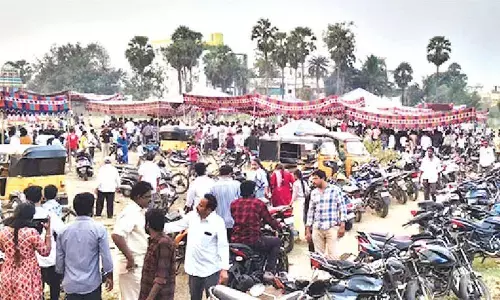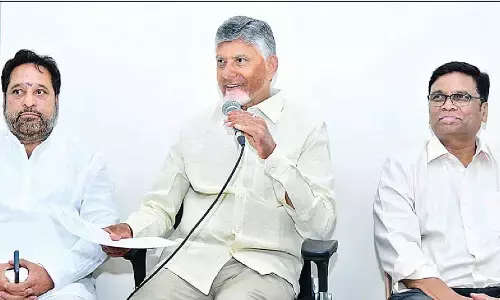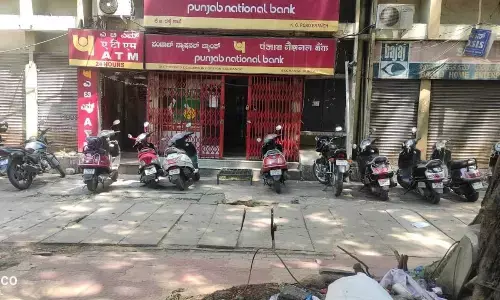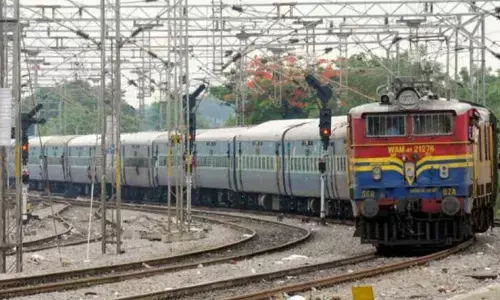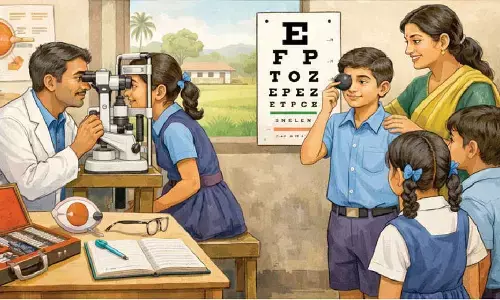Pranab Mukherjee: India mourns its illustrious son
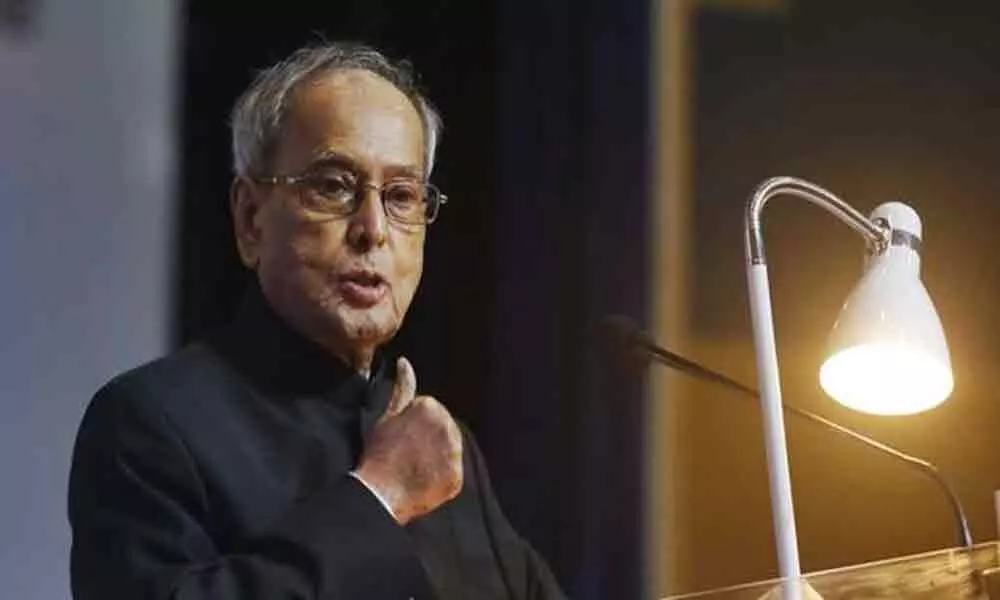
Pranab Mukherjee
Former President, Bharat Ratna Pranab Mukherjee (84), is no more. Pranab Da as the illustrious son of India was affectionately called by one and all, was admitted to the Defence Hospital at New Delhi for a brain surgery for the removal of blood clot, but also tested positive for COVID-19. He breathed his last 31 August 2020
Former President, Bharat Ratna Pranab Mukherjee (84), is no more. Pranab Da as the illustrious son of India was affectionately called by one and all, was admitted to the Defence Hospital at New Delhi for a brain surgery for the removal of blood clot, but also tested positive for COVID-19. He breathed his last on 31 August 2020
He leaves behind a daughter, Sharmishta Mukherjee and two sons, Indrajit Mukherjee and Abhijeet Mukherjee.
Pranab Mukherjee was born in a Bengali family in Mirati, a village in the Bengal Presidency of British India (now in Birbhum district, West Bengal) on December 11, 1935. His father, Kamada Kinkar Mukherjee was active in the Indian independence movement and was a member of West Bengal Legislative Council between 1952 and 1964 as a representative of the Indian National Congress and was the member of AICC. His mother was Rajlakshmi Mukherjee.
He attended the Suri Vidyasagar College, Birbhum, and became a Master in Political Science. Before his entry into politics, he worked in several government departments and also as a lecturer in Vidyasagar College, Kolkata.
Pranab Mukherjee got his break in politics in 1969 when the then Prime Minister Indira Gandhi helped him get elected to the Rajya Sabha, the upper house of Parliament of India, on a Congress ticket. Following a meteoric rise, he became one of Gandhi's most trusted lieutenants and a minister in her cabinet in 1973. During the controversial Internal Emergency of 1975–77, he was accused (like several other Congress leaders) of committing gross excesses. Mukherjee's service in a number of ministerial capacities culminated in his first stint as Finance Minister of India in 1982–84. He was also the Leader of the House in the Rajya Sabha from 1980 to 1985.
Mukherjee was sidelined from the Congress during the premiership of Rajiv Gandhi. Mukherjee had viewed himself and not the inexperienced Rajiv, as the rightful successor to Indira following her assassination in 1984. This perhaps led to his political miscalculation in falling out with the Nehru-Gandhi family and he formed his own Rashtriya Samajwadi Congress which he later merged with the Congress in 1989.
After Rajiv Gandhi's assassination in 1991, Mukherjee's political career revived when the then Prime Minister P. V. Narasimha Rao appointed him as Planning Commission head in 1991 and foreign minister in 1995. Following this, as an elder statesman of the Congress, Mukherjee was the principal architect of Sonia Gandhi's ascension to the party's presidency in 1998.
When the Congress-led United Progressive Alliance (UPA) came into power in 2004, Mukherjee won a Lok Sabha seat seat for the first time.
The crowning glory in his political career came when he became the President of India in 2012, a dream he nurtured since his childhood (of entering the Rashtrapati Bhawan).
In a political career spanning five decades, Pranab Da rose in power and positions steadily with his intellectual acumen and shrewd positioning in the Congress party. He was the number two practically in the Congress Governments chairing nearly as many as 60 committees or so in the latter part of his career.
Pranab Da was one of those who had seen all faces and phases of modern Indian politics and who knew the nuts and bolts of the governance systems. His advice was the most sought after by the Congress governments. In 2012, he defeated P A Sangma to become the President with 70 per cent of the vote.
In 2017, Mukherjee decided not to run for re-election and to retire from politics after leaving the presidency due to "health complications relating to old age". His term expired on 25 July 2017. He was succeeded as President by Ram Nath Kovind. In June 2018 Mukherjee became the first former President of India to address a Rashtriya Swayamsevak Sangh (RSS) event, where he neither compromised on his long cherished principles of secularism nor lost a chance to drive in his philosophy.
Pranab Da 'was a man for all seasons', literally.
His term was noted for his work in improving the finances of the government that enabled Gandhi to score a political point by returning the last instalment of India's first IMF loan. As Finance Minister, Mukherjee signed the letter appointing Manmohan Singh as Governor of the Reserve Bank of India.
Pranab Mukherjee was "very well respected within the party social circles. Media accounts describe him as having "a reputation as a number-crunching politician with a phenomenal memory and an unerring survival instinct."
As for the Congress, Mukherjee became a member of the Congress Working Committee on 27 January 1978. He also became a member of the Central Parliamentary Board of the All India Congress Committee (AICC) that year. Mukherjee briefly held the position of treasurer of the AICC and the Congress party in 1978.
Mukherjee was appointed chairman of the Campaign Committee of AICC for conducting National Elections to Parliament in 1984, 1991, 1996, and 1998. He was chairman of the Central Election Coordination Committee of the AICC from 28 June 1999 to 2012. He was appointed to the Central Election Committee on 12 December 2001. Mukherjee was appointed General Secretary of the AICC in 1998. In 1997 Mukherjee was voted Outstanding Parliamentarian by the Indian Parliamentary Group.
After Sonia Gandhi reluctantly agreed to join politics, Mukherjee was one of her mentors, guiding her through difficult situations with examples of how her mother-in-law, Indira Gandhi would have done things. His talents were on display during the negotiations for the Patent's Amendment Bill in early 2005. The Congress was committed to passing an IP bill, but their allies in the United Progressive Alliance from the Left front had a long tradition of opposing some of the monopoly aspects of intellectual property. Pranab Mukherjee, as Defence Minister, was not formally involved but was roped in for his negotiation skills. He drew on many old alliances including the CPI-M leader Jyoti Basu (former Chief Minister of West Bengal), and formed new intermediary positions, which included product patent and little else. Then he had to convince his own colleagues including commerce minister Kamal Nath, at one point saying: "An imperfect legislation is better than no legislation." Finally the bill was approved on 23 March 2005.
Mukherjee's role in "skillfully pushing through the historic 123 Agreement and treaty with the Nuclear Suppliers Group" may have saved the UPA-II government from the 2008 motion of no confidence.
Mukherjee played a crucial role in steering the Cabinet pre-Lok Sabha elections when Prime Minister Manmohan Singh underwent a by-pass surgery in 2008–09 by taking additional charges as chairman of the Cabinet Committee of Political Affairs and Union Minister in the Finance Ministry despite already being Union Minister of External Affairs.
Mukherjee was the recipient of "The Best Administrator in India" award in 2011. Prime Minister Manmohan Singh commented: "Mr. Mukherjee's knowledge of parliamentary matters was stupendous. The wide respect he commanded and his long association with the political leaders across the spectrum had proved invaluable in conducting the parliamentary business."
Mukherjee's political skills and long experience in government have also led him to head a large number of committees of Ministers in the government, a device that has been employed to obtain consensus within the members of the governing coalition on contentious issues. At the time of his resignation on being nominated as the UPA's presidential candidate, Mukherjee was heading several Groups of Ministers(GoMs) and Empowered Groups of Ministers (EGoMs).








